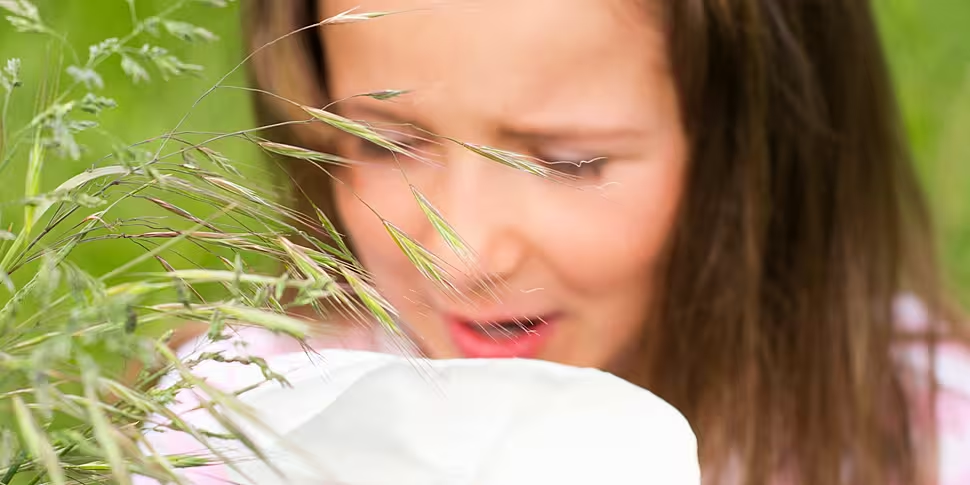The sun is shining and flowers are in full bloom - exactly what you don't need if you suffer from hay fever.
The allergic reaction to pollen can produce an array of symptoms - from sneezing to watery eyes.
Hay fever is usually worse when it's warm, humid and windy. This is when the pollen count is at its highest.
Ruth Morrow, Respiratory Nurse Specialist at The Asthma Society of Ireland, told The Pat Kenny Show this can be even worse for asthma sufferers.
"People are susceptible, even if they don't have asthma - but those who have asthma are possibly more susceptible," she said.
"Things like sneazy, itchy eyes, watery eyes, itchy throat, itchy inside of the mouth and inner ear, post-nasal drip, and then the horrible thing of headache and feeling unwell.
"Reduced concentration can be a major problem for people".

Ms Morrow said this year may see more people affected than previously.
"Our immune systems, maybe, have deteriorated a little bit over the last number of years so we're not able to fight it as much," she said.
"At the moment, the grass pollen is extremely high - because of our nice, fine weather - and there's a lot of grass being cut.
"There's very little rain to wash it down either, so the pollen levels are quite high and are going to be high for the foreseeable future".
The Asthma Society has a Pollen Tracker, which is updated daily with a regional forecast.
What can you do?
Ms Morrow said there are a number of ways people can negate the symptoms of hay fever.
"Things like closing your windows," she said.
"We all love to open our windows whenever the sun is shining... but unfortunately the pollen will come in and land on your furniture and on your bed clothes.
"Closing the windows, say from 12pm in the day, is probably a good idea.
"Certainly don't have them open at night time.
"Wearing things like wraparound sunglasses when you're outside will stop the pollens getting into your eyes.
"Putting some Vaseline on your nose actually can help trap the pollens going up into the sinuses".
Going outside
Ms Morrow also has tips for people spending a long time outdoors.
"If you're outdoors for a long period of time, have a shower when you come in and wash your hair," she said.
"If your pet has been outside for a while as well, the pollen is going to get trapped in the pet's hair.
"So unfortunately we have to avoid kind of hugging and cuddling our pets.
"Using the pollen tracker obviously is very helpful, and then having your asthma action plan is really important as well".
Ms Morrow said wearing masks, similar to those worn during the pandemic, "can help for some people.
"They're not very comfortable to wear when the weather is warm, but they can help".
Medicines which can help include antihistamines - both over the counter and prescription.
"A lot of the now are over-the-counter, which makes them very accessible to people," she said
"If these aren't effective for you, then you can talk to your GP about getting some prescription antihistamines - as well as other therapies as well," she added.









